
Major boost for biosecurity in Queensland Budget
The Invasive Species Council has welcomed significant new investment in Queensland’s biosecurity system in today’s state budget.

The Invasive Species Council has welcomed significant new investment in Queensland’s biosecurity system in today’s state budget.
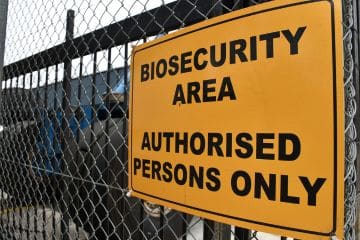
The Invasive Species Council has welcomed Prime Minister Anthony Albanese’s firm rejection of US pressure to weaken Australia’s biosecurity laws.

The Albanese government is finally investing a serious amount into preparation for what could be the worst environmental disaster in Australia’s history.
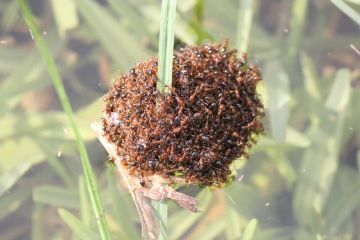
The Invasive Species Council welcomes the appointment of the Hon. Julie Collins MP as the new Australian Minister for Agriculture, Fisheries and Forestry and thanks outgoing Minister Murray Watt for his service.

Following an ABC story over the weekend featuring the Invasive Species Council which highlighted the alarming threat of the deadly H5N1 bird flu strain to our native animals – a threat that is wreaking havoc overseas – the federal government has today announced a $7 million preparation package.

The Invasive Species Council, the Australian Marine Conservation Society and the Biodiversity Council are calling on Australia’s governments to urgently and collaboratively ramp up preparations for bird flu in wildlife.

New global research highlights the severe impact of invasive species on Indigenous culture and connection to Country.
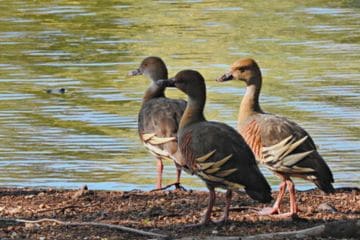
The Invasive Species Council has called on the Australian Government to swing into immediate action to prepare for the fight against a killer bird flu turning up in Australia’s wild birds, following the announcement of the discovery of a bird flu strain on an egg farm in Victoria.

The 3rd Australian Biosecurity Symposium is making waves! The Symposium will be held at SeaWorld Resort on the Gold Coast from 27-29 August 2024.Our symposium

Unfortunately the lofty promise of the National Biosecurity Strategy is at risk.

The federal budget has taken important steps, but more work is needed to ensure key sectors are paying for the biosecurity risks they create.
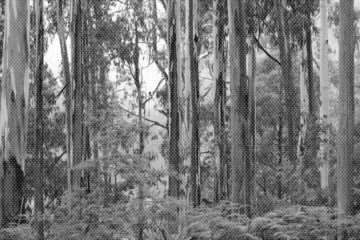
In the leadup to the federal budget a new report from Frontier Economics has highlighted the range of funding measures the Australian government could deploy to strengthen

The Invasive Species Council is calling on the Australian Government to urgently prepare for the potential arrival of a deadly bird flu known as HPAI H5.
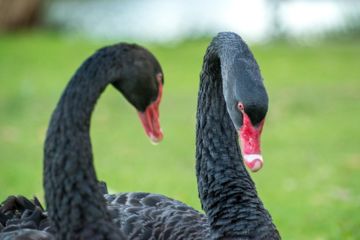
While COVID has been spreading around the world, highly pathogenic avian influenza (HPAI) has also been spreading.

The agricultural and environmental biosecurity office has had budgets slashed, biosecurity funding is on the table, the National Biosecurity Strategy is moving forward, and the Decade of Biosecurity has a new national coordinator.

The Invasive Species Council has welcomed significant new investment in Queensland’s biosecurity system in today’s state budget.

The Invasive Species Council has welcomed Prime Minister Anthony Albanese’s firm rejection of US pressure to weaken Australia’s biosecurity laws.

The Albanese government is finally investing a serious amount into preparation for what could be the worst environmental disaster in Australia’s history.

The Invasive Species Council welcomes the appointment of the Hon. Julie Collins MP as the new Australian Minister for Agriculture, Fisheries and Forestry and thanks outgoing Minister Murray Watt for his service.

Following an ABC story over the weekend featuring the Invasive Species Council which highlighted the alarming threat of the deadly H5N1 bird flu strain to our native animals – a threat that is wreaking havoc overseas – the federal government has today announced a $7 million preparation package.

The Invasive Species Council, the Australian Marine Conservation Society and the Biodiversity Council are calling on Australia’s governments to urgently and collaboratively ramp up preparations for bird flu in wildlife.

New global research highlights the severe impact of invasive species on Indigenous culture and connection to Country.

The Invasive Species Council has called on the Australian Government to swing into immediate action to prepare for the fight against a killer bird flu turning up in Australia’s wild birds, following the announcement of the discovery of a bird flu strain on an egg farm in Victoria.

The 3rd Australian Biosecurity Symposium is making waves! The Symposium will be held at SeaWorld Resort on the Gold Coast from 27-29 August 2024.Our symposium

Unfortunately the lofty promise of the National Biosecurity Strategy is at risk.

The federal budget has taken important steps, but more work is needed to ensure key sectors are paying for the biosecurity risks they create.

In the leadup to the federal budget a new report from Frontier Economics has highlighted the range of funding measures the Australian government could deploy to strengthen

The Invasive Species Council is calling on the Australian Government to urgently prepare for the potential arrival of a deadly bird flu known as HPAI H5.

While COVID has been spreading around the world, highly pathogenic avian influenza (HPAI) has also been spreading.

The agricultural and environmental biosecurity office has had budgets slashed, biosecurity funding is on the table, the National Biosecurity Strategy is moving forward, and the Decade of Biosecurity has a new national coordinator.

The Invasive Species Council has welcomed significant new investment in Queensland’s biosecurity system in today’s state budget.

The Invasive Species Council has welcomed Prime Minister Anthony Albanese’s firm rejection of US pressure to weaken Australia’s biosecurity laws.

The Albanese government is finally investing a serious amount into preparation for what could be the worst environmental disaster in Australia’s history.

The Invasive Species Council welcomes the appointment of the Hon. Julie Collins MP as the new Australian Minister for Agriculture, Fisheries and Forestry and thanks outgoing Minister Murray Watt for his service.

Following an ABC story over the weekend featuring the Invasive Species Council which highlighted the alarming threat of the deadly H5N1 bird flu strain to our native animals – a threat that is wreaking havoc overseas – the federal government has today announced a $7 million preparation package.

The Invasive Species Council, the Australian Marine Conservation Society and the Biodiversity Council are calling on Australia’s governments to urgently and collaboratively ramp up preparations for bird flu in wildlife.

New global research highlights the severe impact of invasive species on Indigenous culture and connection to Country.

The Invasive Species Council has called on the Australian Government to swing into immediate action to prepare for the fight against a killer bird flu turning up in Australia’s wild birds, following the announcement of the discovery of a bird flu strain on an egg farm in Victoria.

The 3rd Australian Biosecurity Symposium is making waves! The Symposium will be held at SeaWorld Resort on the Gold Coast from 27-29 August 2024.Our symposium

Unfortunately the lofty promise of the National Biosecurity Strategy is at risk.

The federal budget has taken important steps, but more work is needed to ensure key sectors are paying for the biosecurity risks they create.

In the leadup to the federal budget a new report from Frontier Economics has highlighted the range of funding measures the Australian government could deploy to strengthen

The Invasive Species Council is calling on the Australian Government to urgently prepare for the potential arrival of a deadly bird flu known as HPAI H5.

While COVID has been spreading around the world, highly pathogenic avian influenza (HPAI) has also been spreading.

The agricultural and environmental biosecurity office has had budgets slashed, biosecurity funding is on the table, the National Biosecurity Strategy is moving forward, and the Decade of Biosecurity has a new national coordinator.
Get our blog the Feral Herald delivered to your inbox.

The Invasive Species Council was formed in 2002 to seek stronger laws, policies and programs to protect nature from harmful pests, weeds and diseases.
The Invasive Species Council acknowledges the Traditional Custodians throughout Australia and their connections to land and sea. We pay our respect to their Elders past and present and extend that respect to all Aboriginal and Torres Strait Islander peoples today.
Our protected areas are being trashed, trampled, choked and polluted by an onslaught of invaders. Invasive species are already the overwhelming driver of our animal extinction rate, and are expected to cause 75 of the next 100 extinctions.
But you can help to turn this around and create a wildlife revival in Australia.
From numbats to night parrots, a tax-deductible donation today can help defend our wildlife against the threat of invasive weeds, predators, and diseases.
As the only national advocacy environment group dedicated to stopping this mega threat, your gift will make a big difference.
A silent crisis is unfolding across Australia. Every year, billions of native animals are hunted and killed by cats and foxes. Fire ants continue to spread and threaten human health. And the deadly strain of bird flu looms on the horizon. Your donation today will be used to put the invasive species threat in the media, make invasive species a government priority, ensure governments take rapid action to protect nature and our remarkable native wildlife from invasives-led extinction, death and destruction.
If you are having trouble submitting a form, please read this guide.
Please fill out the following form and one of our team will be in contact to assist as soon as possible. Please make sure to include any helpful information, such as the device you were using (computer, tablet or mobile phone) and if known, your browser (Mozilla Firefox, Chrome, Safari etc)
"*" indicates required fields
Dear Project Team,
[YOUR PERSONALISED MESSAGE WILL APPEAR HERE.]
I support the amendment to the Kosciuszko National Park Wild Horse Heritage Management Plan to allow our incredible National Parks staff to use aerial shooting as one method to rapidly reduce feral horse numbers. I want to see feral horse numbers urgently reduced in order to save the national park and our native wildlife that live there.
The current approach is not solving the problem. Feral horse numbers have rapidly increased in Kosciuszko National Park to around 18,000, a 30% jump in just the past 2 years. With the population so high, thousands of feral horses need to be removed annually to reduce numbers and stop our National Park becoming a horse paddock. Aerial shooting, undertaken humanely and safely by professionals using standard protocols, is the only way this can happen.
The government’s own management plan for feral horses states that ‘if undertaken in accordance with best practice, aerial shooting can have the lowest negative animal welfare impacts of all lethal control methods’.
This humane and effective practice is already used across Australia to manage hundreds of thousands of feral animals like horses, deer, pigs, and goats.
Trapping and rehoming of feral horses has been used in Kosciuszko National Park for well over a decade but has consistently failed to reduce the population, has delayed meaningful action and is expensive. There are too many feral horses in the Alps and not enough demand for rehoming for it to be relied upon for the reduction of the population.
Fertility control as a management tool is only effective for a small, geographically isolated, and accessible population of feral horses where the management outcome sought is to maintain the population at its current size. It is not a viable option to reduce the large and growing feral horse population in the vast and rugged terrain of Kosciuszko National Park.
Feral horses are trashing and trampling our sensitive alpine ecosystems and streams, causing the decline and extinction of native animals. The federal government’s Threatened Species Scientific Committee has stated that feral horses ‘may be the crucial factor that causes final extinction’ for 12 alpine species.
I recognise the sad reality that urgent and humane measures are necessary to urgently remove the horses or they will destroy the Snowies and the native wildlife that call the mountains home. I support a healthy national park where native species like the Corroboree Frog and Mountain Pygmy Possum can thrive.
Dear Project Team,
[YOUR PERSONALISED MESSAGE WILL APPEAR HERE.]
I support the amendment to the Kosciuszko National Park Wild Horse Heritage Management Plan to allow our incredible National Parks staff to use aerial shooting as one method to rapidly reduce feral horse numbers. I want to see feral horse numbers urgently reduced in order to save the national park and our native wildlife that live there.
The current approach is not solving the problem. Feral horse numbers have rapidly increased in Kosciuszko National Park to around 18,000, a 30% jump in just the past 2 years. With the population so high, thousands of feral horses need to be removed annually to reduce numbers and stop our National Park becoming a horse paddock. Aerial shooting, undertaken humanely and safely by professionals using standard protocols, is the only way this can happen.
The government’s own management plan for feral horses states that ‘if undertaken in accordance with best practice, aerial shooting can have the lowest negative animal welfare impacts of all lethal control methods’.
This humane and effective practice is already used across Australia to manage hundreds of thousands of feral animals like horses, deer, pigs, and goats.
Trapping and rehoming of feral horses has been used in Kosciuszko National Park for well over a decade but has consistently failed to reduce the population, has delayed meaningful action and is expensive. There are too many feral horses in the Alps and not enough demand for rehoming for it to be relied upon for the reduction of the population.
Fertility control as a management tool is only effective for a small, geographically isolated, and accessible population of feral horses where the management outcome sought is to maintain the population at its current size. It is not a viable option to reduce the large and growing feral horse population in the vast and rugged terrain of Kosciuszko National Park.
Feral horses are trashing and trampling our sensitive alpine ecosystems and streams, causing the decline and extinction of native animals. The federal government’s Threatened Species Scientific Committee has stated that feral horses ‘may be the crucial factor that causes final extinction’ for 12 alpine species.
I recognise the sad reality that urgent and humane measures are necessary to urgently remove the horses or they will destroy the Snowies and the native wildlife that call the mountains home. I support a healthy national park where native species like the Corroboree Frog and Mountain Pygmy Possum can thrive.